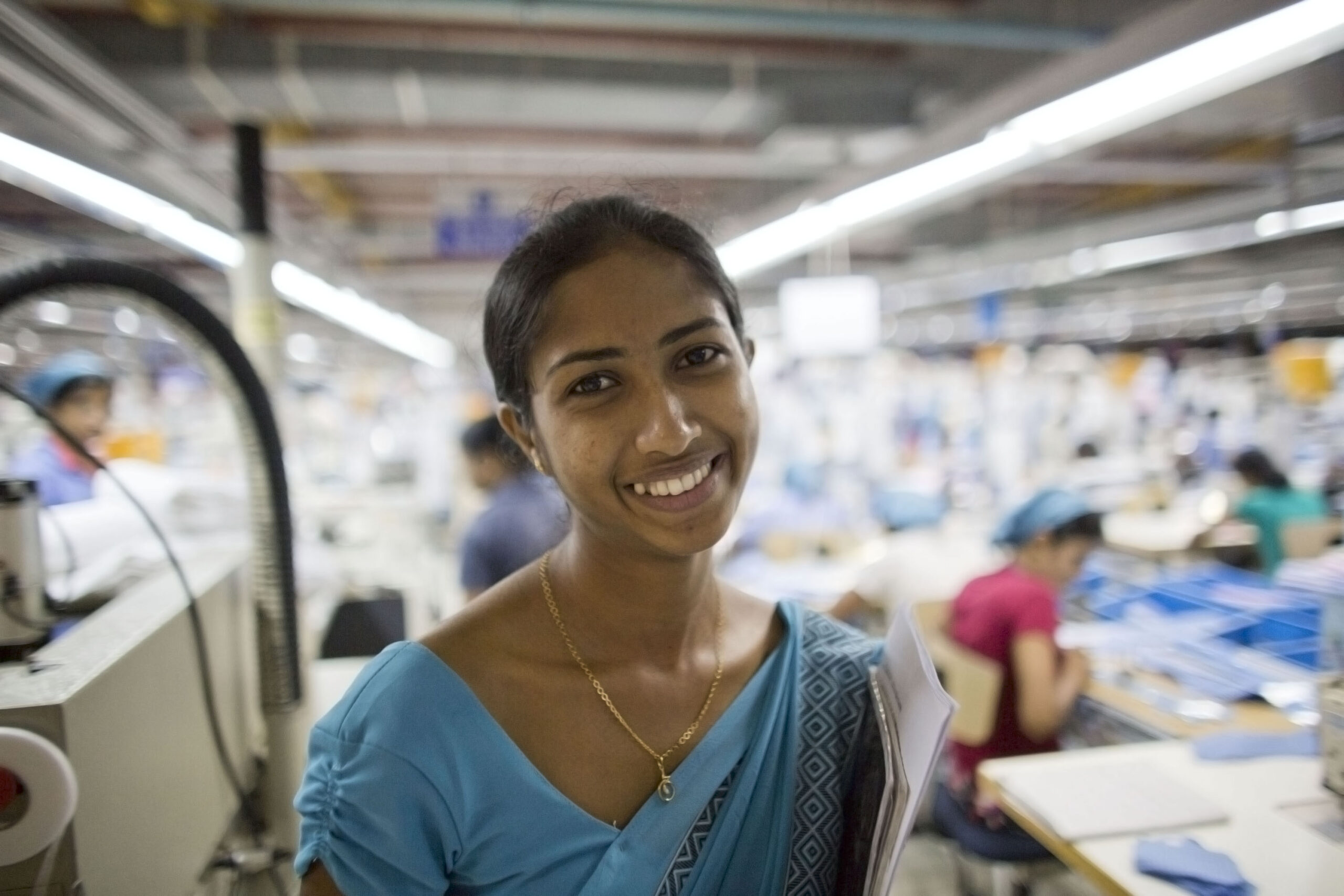Hunkemöller.
Hunkemöller, a Dutch lingerie chain with strong sustainability commitments, has established a 2025 sustainability roadmap with clear and ambitious targets and key performance indicators on gender discrimination.

Hunkemöller is a Dutch lingerie chain with strong commitments to sustainability, particularly gender equality, as their products are made by women for women. Hunkemöller is a signatory of the Women’s Empowerment Principles and committed to achieving the Sustainable Development Goals. In 2022, they published their ‘Together Tomorrow’ sustainability report, which announces their 2025 roadmap to tackle industry challenges, share best practices and drive positive change. Hunkemöller has set itself strong sustainability objectives, divided into
three main themes: the working environment, the environment, and the community. These objectives are accompanied by ambitious targets and key performance indicators. For example, by 2024 Hunkemöller aims to abolish all types of discrimination, harassment, and victimisation in their own operations and supply chain. They also work towards inclusivity by empowering oppressed groups, improve recruitment practices and right to development through collective projects by 2024.
Hunkemöller’s policies, objectives and targets relating to gender are informed by an extensive data gathering process, which includes audits, visits to and direct contact with suppliers, a materiality assessment and annual risk assessments. In this way, Hunkemöller identified the most salient risks in their supply chain and as a result found that gender discrimination is a salient risk. Therefore, Hunkemöller established addressing gender discrimination as one of the key performance indicators. Additionally, Hunkemöller has great gender–disaggregated insights into their workforce. They know, for example, how many women are working in their supply chain workforce (70%), how many women are in management positions (49%) and the percentage of their production locations owned by women (4%).
Actions undertaken
Actions they have undertaken to achieve the gender discrimination objective include:
- Updated the Code of Conduct to be more inclusive and to include gender specific indicators.
- Included a gender lens in policy and strategy and progress on gender indicators is discussed monthly with the buying department.
- Worked towards ensuring an effective implementation of maternity support policy in factories in Bangladesh, with the aim to increase pregnant workers’ awareness of safe pregnancy and motherhood, as well as increasing the maternity return rate and numbers following breastfeeding best practice.
- Addressed gender-based violence in the supply chain, by training managers and workers on sexual harassment in the workplace. Trainings will bring attention to gender discrimination, laws and support that can be given to victims of gender-based violence, self-protection for participants surrounding online sexual harassment, as well as building self-reliance for stress management in crisis situations.
- Implemented a WNCB project in Vietnam with expected positive outcomes for working parents.
- Collaborated with amfori, for example by making use of the gender-disaggregated data amfori collects, by building the capacity of suppliers through the amfori training and by using amfori resources, particularly their on the ground insights in specific production countries.
In the near future, Hunkemöller plans to continue with projects to train workers on the topic of gender discrimination and to empower women and contribute to closing the gender gap. They also aim to continue to build in the gender aspect in policies and collective projects, for example including a gender lens in their wage management project in China. Lastly, Hunkemöller also strives to dive deeper into the supply chain, going beyond tier 1 and ensuring a stricter enforcement.
How is this gender-responsive due diligence?
Step 4 of the human rights due diligence process is about tracking the implementation and effectiveness of the process and monitoring compliancy and progress. This requires ongoing work to review and track the impact as well as determining whether the targeted actions have or have not had the desired effect. Tracking progress in a gender-responsive way means that a company is deliberate about including measurement goals that are disaggregated by gender. Effective impact measurement starts before an action is implemented. Determining beforehand how success will be measured, what kind of gender-disaggregated data will be needed to measure success, and how this data will be obtained should be part and parcel of the preparation of any action. Lastly, companies with elaborate supply chains should work together with suppliers to unearth gender-disaggregated information, for example by means of audits.
By establishing a roadmap with clear targets on gender discrimination, Hunkemöller has ensured effective impact measurement before actions are implemented. Through its sustainability report, Hunkemöller also reports annually on the progress that is made on the indicators and by discussing the indicators in monthly meetings, Hunkemöller has ensured that the roadmap is embedded in the management structures of the company. Hunkemöller undertakes an annual risk assessment, which is a strong, continuous instrument to determine whether the policies and strategy are effective or may need to change to obtain the desired results. Lastly, Hunkemöller works together with suppliers, through projects, audits, and direct contact, to obtain gender-disaggregated about the supplier workforce. As a result, they have strong insights into their supplier workforce and know what their salient risks are.
Learning and recommendation for others
- Hunkemöller has learned that gender discrimination is a topic that is culturally sensitive and thus requires a bottom-up approach. This is why gender awareness training is so important, for example, relating to topics like parental leave, addressing gender-based violence and LGBTI rights. The supplier workforce needs to be aware of their rights and obligations before real change can be made through interventions.
- Hunkemöller advices other companies that are just starting out on their gender-responsive due diligence journey to not be afraid. Sustainability can seem like an overwhelming topic and companies are unsure how to prioritize. According to Hunkemöller, it’s more important to get started and to undertake action rather than to wait to be perfect. Companies should work together with a broad range of stakeholders, make use of all the information that is available and to learn from others.
